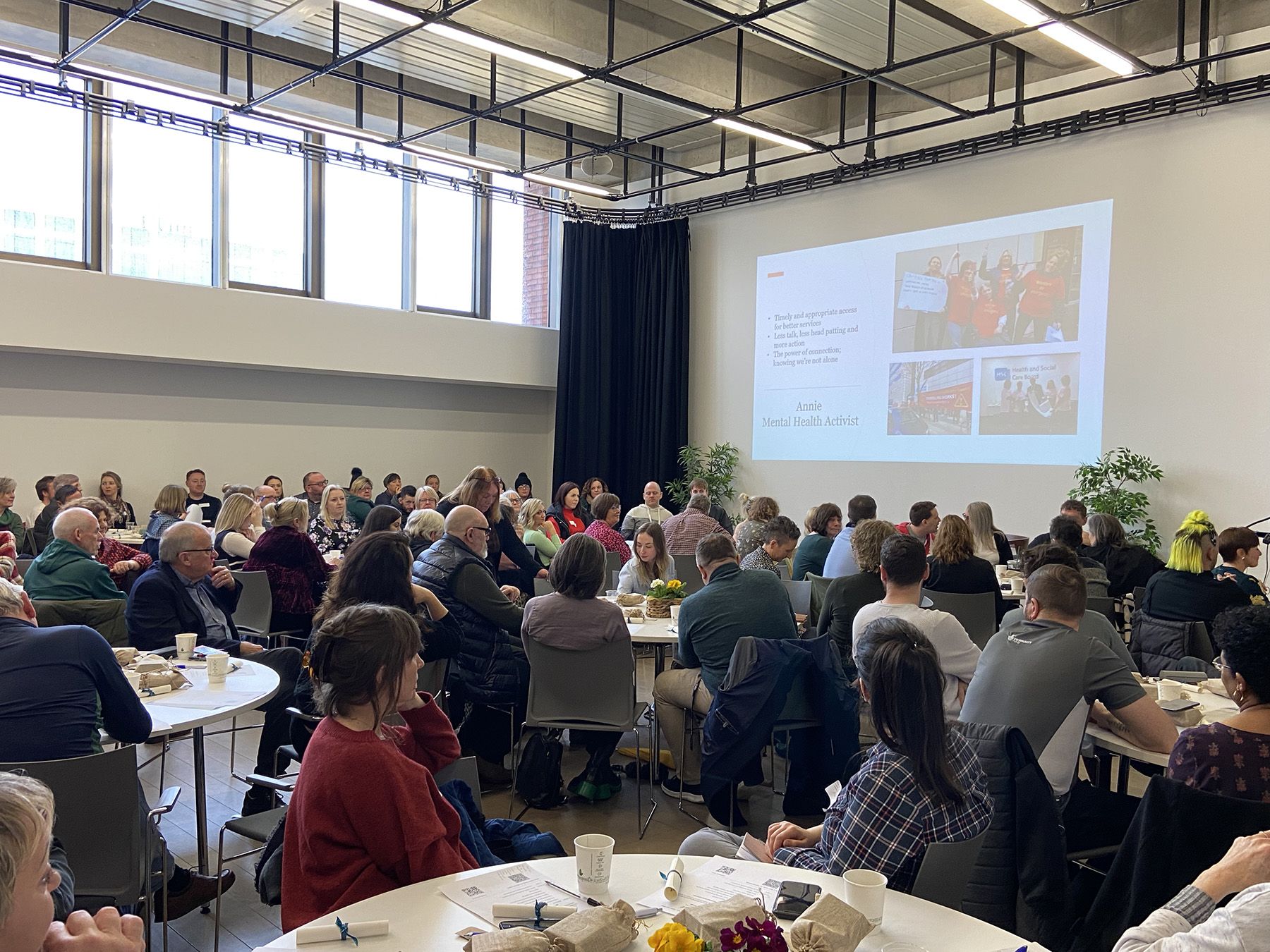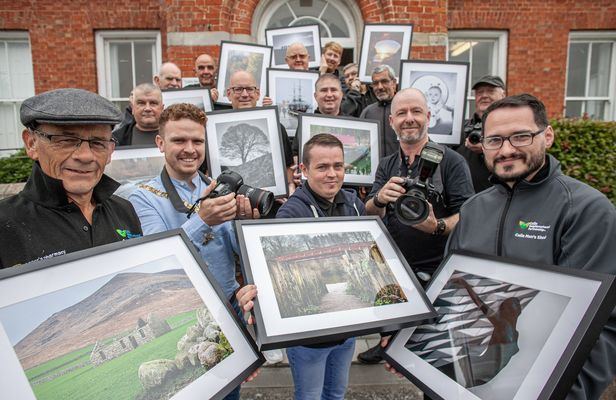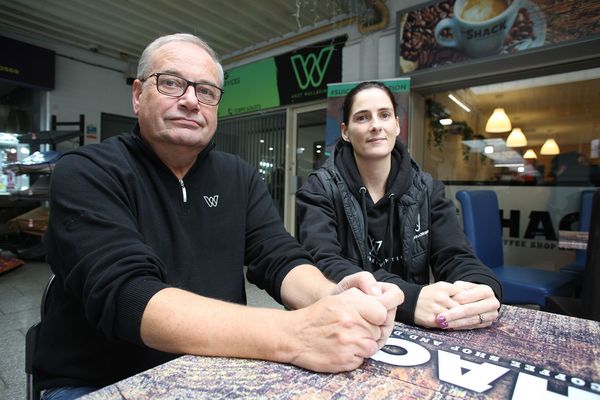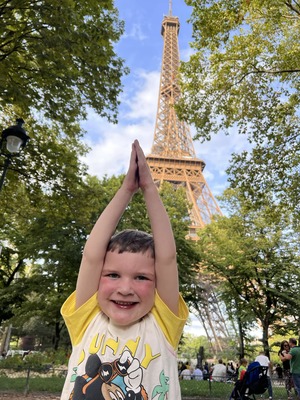A NEW grassroots initiative looking at a better approach to mental health launched this week in the Mac Theatre.
Entitled a ‘New Script for Mental Health’ the initiative aims to promote and facilitate conversations across society around what a better approach to mental health could look like, as well as making that collective vision a reality.
Mental health activists, practitioners and a range of community organisations attended the launch in the MAC, hearing first-hand experiences of people with lived experiences of trauma, and who, for over a decade, have spearheaded campaigns to address systemic failures in the existing mental health system.
The purpose of the movement is to collectively develop a New Script for Mental Health, grounded in human rights and trauma-informed principles.
Mental Health Activist with PPR, Kirsty Scott, has been campaigning for several years for better mental health services following the death of her son in 2013.
Explaining the campaign, Kirsty said: “The new script is you having your say on what you think. If you could go into the doctors and say my mental health is bad and if they asked what they could prescript to you, what is the one thing that would help you. It’s giving people a chance to say.
Kirsty Scott became a mental health activist following the death of her 19-year-old son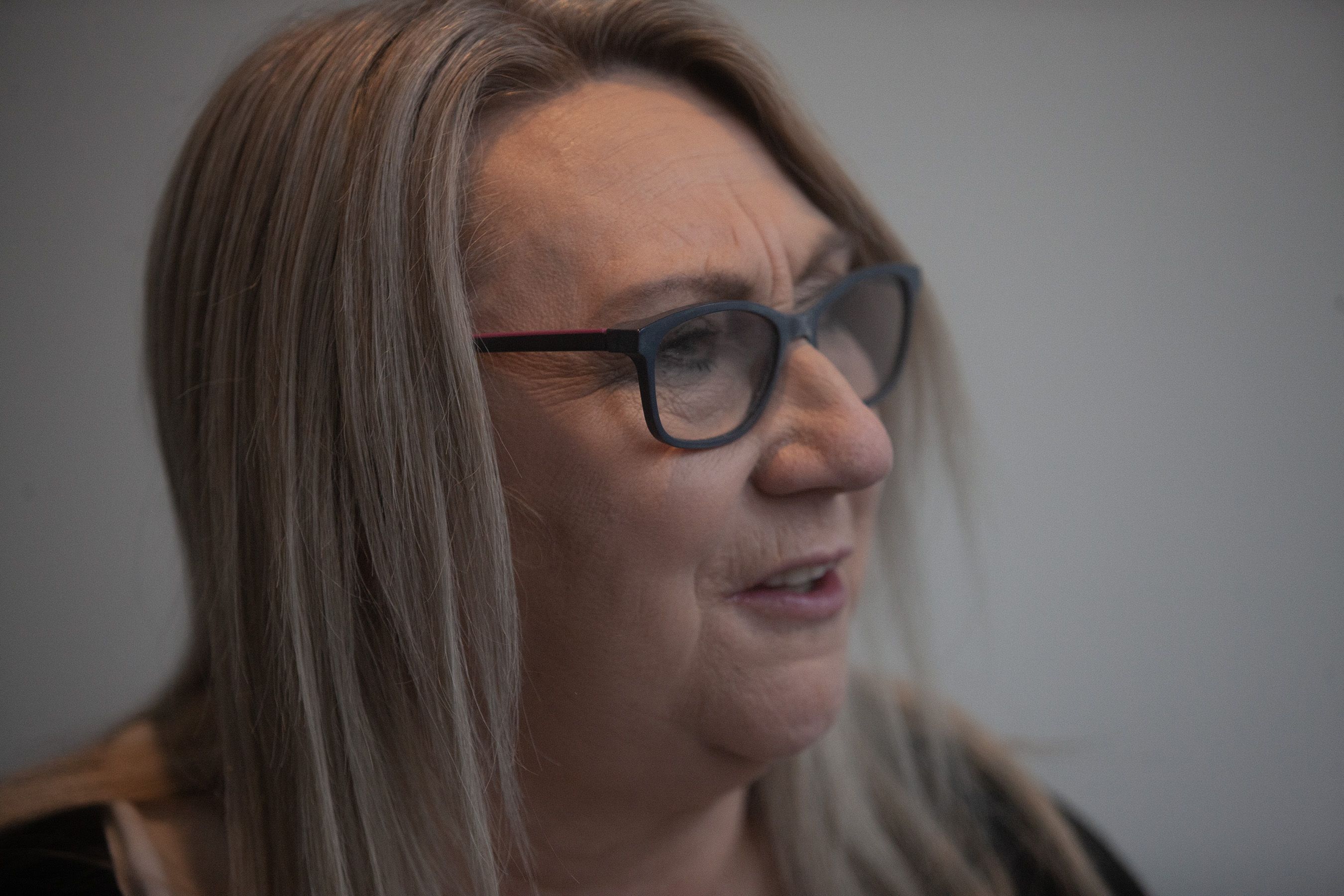
“I had a battle trying to get mental health services for my son before he died. Three weeks before he died, he was in services, and they weren’t taking him seriously. I said to them if you don’t help me today my son is going to be dead, and he died three weeks later.”
Kirsty’s son William died aged 19 after taking what he believed to be a legal high.
“We tried to get him in to counselling, and it turned out he was on the wrong type of counselling, and he had been misdiagnosed. This is reality. In William’s case, referrals weren’t sent at aged 15. At the most important time they forgot to send the referral.
“The reason that I got into this is because I don’t want anybody else to go through it but there’s so many other parents that are going through it, trying to get help for their children. That’s why I got involved in the campaign. Getting involved in the campaign you can have your voice and help other people to try and make changes at the same time.”
Kirsty has referred to the ages of 16 to 19 as “no man’s land".
The #NewScript entries are coming in fast!
— PPR (@PPR_Org) February 6, 2023
"An acknowledgment that it was the lack of a living wage, security of tenure and access to a proper standard of living which was fuelling the trauma and distress so prevalent in our community."
Add yours here: https://t.co/441bhR6tkm pic.twitter.com/sn6X9Z7rao
“No service wants to know you. We need a system that is going from 16 to 25 because as a parent you go to look for help and you have tried everything and there are no services.”
Jake Mac Siacais, Director of the Falls Road-based Irish language development agency Forbairt Feirste, participated in the campaign’s video series sharing his experiencing suffering with post-traumatic stress disorder.
“I had basically written my own story suffering mental health problems and PPR approached me and asked if I would be willing to do a video and I was more than delighted to do it.
“The first thing that I learnt on my journey of recovery was the amount of people that came to me that I thought were granite, rock hard, and they said to me 'when I was suffering with depression'. I was really taken aback because these were people who had suffered multiple traumas and had seemingly come through it all.”
Jake emphasised that “we’re all vulnerable to it” and that the most important thing is for the conversation to be out there.
“It’s important that the people who are spending our tax money to provide health services are made accountable for their stewardship of that and that they move away from the notion that trauma, mental health, and vulnerability are conditions to be treated rather than nurturing people because then that gets out into the community.”
A powerful launch of @PPR_Org #NewScript for #mentalhealth yesterday @TheMACBelfast so many heartbreaking but inspiring stories & the msg is clear - current mental healthcare provision in the North is not fit for purpose. We need a New Script! pic.twitter.com/pakoWU3cTL
— Gráinne Holland (@grainneholland) February 2, 2023
Jake states that the reason for such high levels of mental distress in working class communities is due to people living in poverty.
“We’re deprived,” he continued. “It isn’t something that only effects deprivation but there is certainly a correlation. There is also a correlation between the availability of services and your ability to pay. It’s a class issue.”
The project has collated a series of videos sharing individual experiences and what a ‘New Script for Mental Health’ looks like to them.
“I think it’s just important that there is a wide variety so that people can see that someone in one of those videos is somebody that they will identify with, because when you’re wading through the black treacle, it’s really important you have someone whose hand that you can feel you can grab.”

